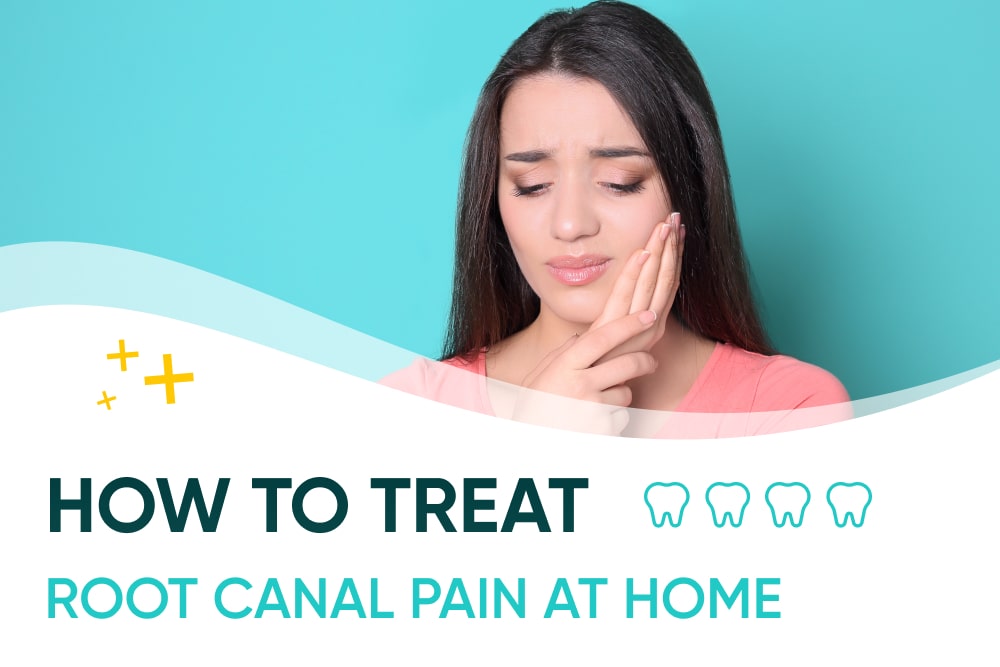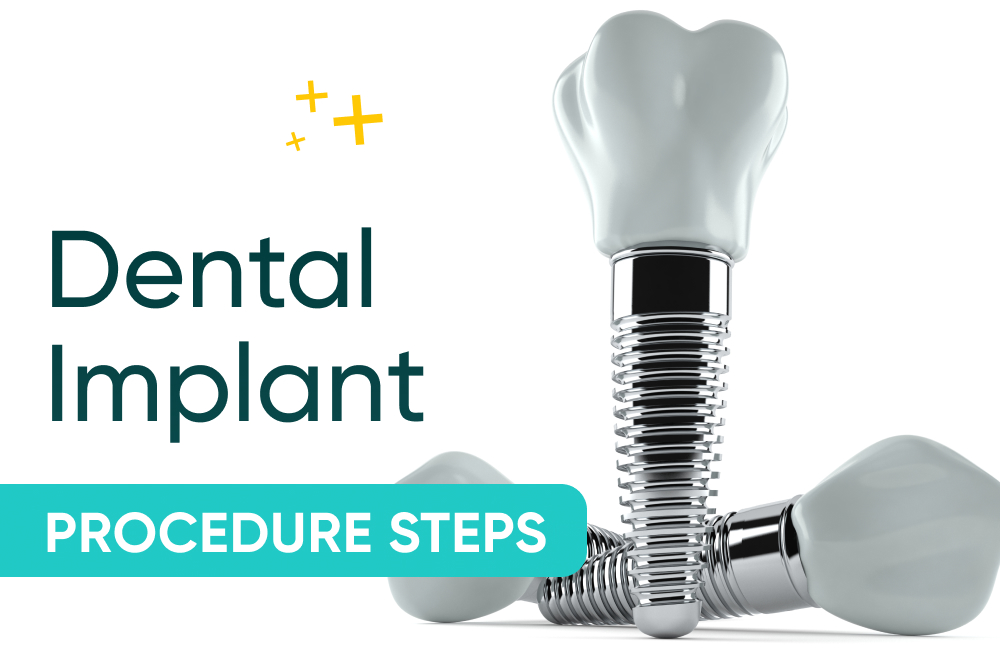A root canal becomes necessary when the soft inner core of the tooth, known as the pulp, becomes infected or inflamed. This can be caused by a deep cavity, a cracked tooth, or trauma to the mouth.
Are root canals painful? Does getting a root canal hurt? How painful is a root canal? These are all valid questions.
During the root canal procedure, your dentist will remove the damaged pulp and replace it with a filling. They have to dig into the root of your tooth to do this, which can be painful and cause swelling afterward.
As such, you want to be prepared to help manage your symptoms at home. Here we’ll explore how you can treat root canal pain, from home remedies, oral care best practices, and diet and lifestyle changes. Of course, you should note that pain should be monitored by your dentist, especially when the discomfort or ache lingers beyond three days.
Signs and symptoms of root canal problems
Root canal problems can be identified by a number of signs and symptoms, including:
1. Pain and discomfort
One of the most common symptoms of a root canal issue is pain and discomfort. This can range from mild to severe, depending on your individual situation. You may experience a throbbing or shooting sensation in the affected area, which can affect your ability to eat, drink and even speak.
Don’t suffer in silence. You should meet with a trusted dentist who can diagnose and treat the root canal issue, to alleviate your pain and discomfort.
2. Sensitivity to hot or cold temperatures
Root canal problems can cause increased sensitivity to hot and cold temperatures. You might experience a sharp, sudden sensation of pain in your teeth when exposed to such temperatures. This can make it very difficult to eat or drink properly, which can hamper your root canal recovery time and affects how long a root canal takes to heal.
3. Swelling or tenderness in the gums
Another common symptom is swelling or tenderness in the gums near the affected tooth, which may also be accompanied by a foul taste in your mouth. This can also lead to persistent bad breath that can make you self-conscious and uncomfortable.
Home remedies for treating root canal pain
It is possible to feel mild tenderness and pain when you get home after getting a root canal. What to do for root canal pain? How to stop throbbing pain after a root canal? How to stop a root canal from hurting?
Here are some things you can do to alleviate it:
Natural pain relief
These home remedies for root canal pain are known to reduce tooth pain, inflammation, and sensitivity:
- Clove oil
- Garlic
- Peppermint oil
Oral care
Some oral care best practices you can consider:
- Saltwater rinse
- Hydrogen peroxide rinse
- Oil pulling
Diet and lifestyle changes
What to do after a root canal? You can manage the pain and keep your teeth healthy with simple diet and lifestyle changes:
- Limiting intake of sugary and acidic foods
- Quitting smoking
- Reducing stress
Additionally, make sure you are getting enough restful sleep every night. This helps your body recover from the day’s stresses and allows for faster recovery from a root canal.
Over-the-counter medications
For mild to moderate discomfort caused by root canal treatment, over-the-counter (OTC) pain medicines such as acetaminophen or ibuprofen can be taken. Be sure to follow the instructions on the package carefully and never take more than is recommended for after root canal care.
Additionally, it’s important to avoid taking aspirin as this could increase bleeding around the affected area.
Make sure to talk to your dentist before taking any medication, even if it’s just OTC medicines, since some medications can interact with the root canal treatment. You want to ensure that you won’t be taking anything that could interfere with the healing process.
Your dentist may even be able to prescribe better pain relief than what you can buy over the counter. This can be useful when you’re feeling more severe pain right after the procedure.
Managing root canal pain
Root canals are inescapable if you want to maintain your dental health. Fortunately, there are various options available to help you manage the discomfort and pain associated with root canal treatments, including over-the-counter medications, natural remedies, and lifestyle modifications.
By following a few simple steps – such as using an anti-inflammatory medication or rinsing your mouth with warm salt water – you can make it easier to get through the treatment and recovery from root canal without too much anxiety or pain.
Remember, though, that you should listen to your body and contact your dentist if the pain persists or worsens. They have the experience and expertise to advise you on the best course of action for your specific situation.
How to treat root canal pain at home? Take proper care of yourself and seek professional help when needed.
Best thing to do: seek professional help
How to relieve root canal pain? As with any other dental concerns, it’s always best to consult with your dentist if you feel lingering pain or discomfort three days after having a root canal. This could mean that there might still be some bacteria left in the root canal area, or that you may need a second root canal procedure.
To save yourself from shelling out more money on top of the root canal costs, having to go multiple times to the dentist, or worse – having an infection that could lead to root canal retreatment pain – it’s best to get professional help from a trained and certified dental professional.
Your dentist can check the area and determine if you need to undergo a second root canal procedure or if there is something else that needs to be done. If you find out that a second root canal is needed, your dentist can advise you on how to effectively and safely take care of your tooth at home while it heals completely.
On the other hand, if the pain isn’t worrying, you’ll then have peace of mind knowing that your tooth is now healthy and recovering. Your dentist can also prescribe antibiotics to help fight off any remaining bacteria and aid in the healing process.
If you’re thinking about getting a root canal, the most important thing you can do is to talk to your dentist about the best options for your particular situation. Our dentists at NoHo Family Dental are experts at providing personalized, comprehensive care for all your dental needs.
Contact us today to learn more about our services.




